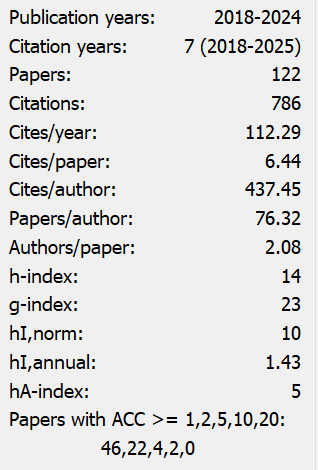Exploration of Financial Management Innovation of Chemical Enterprises Under the Perspective of New Quality Productivity
Abstract
The emergence of global industrial transformation brings about a new quality productivity that is driven by digitalization, greening and high-end production; and thus its role is to change the logic of value creation in the chemical industry. Due to the asset-heavy, high-energy-consuming, and long-cycle characteristics of chemical enterprises, their financial management has structural issues. For example, when it comes to the lack of flexibility of cost control, the absence of environmentally-friendly cost accounting; or lack of timeliness in risk response. A typical chemical enterprise financial management does not have the capacity to respond efficiently to the constantly shifting market landscapes and carbon emissions costs; and, the operational capacity to support enterprises and achieve agile decisions. Today, some of the leading chemical enterprises are starting to try out themes such as smart financial center and carbon asset accounting models. However, the chemical industry too faces systemic issues of data loneliness and incoherent technological applications. The breakthrough at the center of this financial change, instigated by new productivity, is to break free from the limitations of traditional “accounting” and build an ecosystem that has the ability to create value. This could lead to the decisive pursuit of enterprises' existence and development in the low-carbon economy.
References
[2] Łapińska, J., Escher, I., Gorka, J., et al. (2021). Employees’ trust in artificial intelligence in companies: The case of energy and chemical industries in Poland. Energies, 14(7), 1942. https://doi.org/10.3390/en14071942
[3] Ye, J., & Dela, E. (2023). The effect of green investment and green financing on sustainable business performance of foreign chemical industries operating in Indonesia: The mediating role of corporate social responsibility. Sustainability, 15(14), 11218. https://doi.org/10.3390/su151411218
[4] Shen, J. (2025). Cultivation of new quality productivity of enterprises. In Proceedings of the 2025 4th International Conference on Bigdata Blockchain and Economy Management (ICBBEM 2025) (Vol. 195, p. 407). Springer Nature. https://doi.org/10.2991/978-94-6463-742-7_42
[5] Androwis, N., Sweis, R. J., Tarhini, A., et al. (2018). Total quality management practices and organizational performance in the construction chemicals companies in Jordan. Benchmarking: An International Journal, 25(8), 3180–3205. https://doi.org/10.1108/BIJ-05-2017-0094
[6] Lee, V. H., Foo, P. Y., Tan, G. W. H., et al. (2021). Supply chain quality management for product innovation performance: Insights from small and medium-sized manufacturing enterprises. Industrial Management & Data Systems, 121(10), 2118–2142. https://doi.org/10.1108/IMDS-08-2020-0447
[7] He, J. (2024). The theoretical gap in the study of new quality productive forces and the economic analytical perspective of “heterogeneity”. China Finance and Economic Review, 13(4), 59–75. https://doi.org/10.1515/cfer-2024-0022
[8] Rehatibieke Dawutihan. (2017). Analysis on the supervision management and model innovation of construction quality under the new situation. Management & Technology of SME, (4), 4–8.
[9] Xu, Y. (2024). Knowledge transfer within enterprises from the perspective of innovation quality management: A decision analysis based on the Stackelberg game. Sustainability, 16. https://doi.org/10.3390/su16167018
[10] Wang, J., Cao, L., & Gao, M. (2024). Multidimensional scale analysis of the development of China's new quality productivity from the perspective of AI. In 2024 8th Asian Conference on Artificial Intelligence Technology (ACAIT). https://doi.org/10.1109/ACAIT63902.2024.11022293

This work is licensed under a Creative Commons Attribution 4.0 International License.
Copyright for this article is retained by the author(s), with first publication rights granted to the journal.
This is an open-access article distributed under the terms and conditions of the Creative Commons Attribution license (http://creativecommons.org/licenses/by/4.0/).


























